



 Thus
Always to Tyrants
Thus
Always to Tyrants
Massa and missis have long
gone before me.
Soon we will meet on that bright and golden shore.
There we'll be happy and free from
all sorrow.
There's where we'll meet and we'll never part no more.
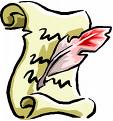
from Carry Me back to Old Virginny by James Allen Bland
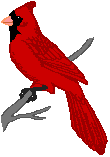









Virginia 1776, Bill of Rights, XVI
That religion, or the duty which we owe to our Creator and the manner of discharging it, can be directed by reason and conviction, not by force or violence; and therefore, all men are equally entitled to the free exercise of religion, according to the dictates of conscience; and that it is the mutual duty of all to practice Christian forbearance, love, and charity towards each other.










Horrible tyrants shall be afraid, when they do but hear of me; I shall be found good among the multitude, and valiant in war.
Song of Solomon 8:15
Institution of Higher Learning
1693 College of William and Mary founded by Virginia House of Burgesses and Anglican churches. It is where Thomas Jefferson, Benjamin Harrison, and Carter Braxton received training.
God our
Father, hear our voices,
Listen to our cry
Bless the college of our fathers,
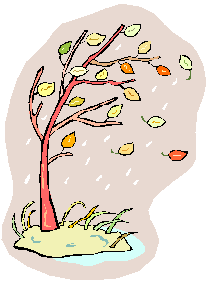 Let her never die.
Let her never die.
College of William and Mary: Founded in 1693 for the advancement of the Christian religion, William and Mary is the second oldest educational institution in the U.S. and is the first U.S. institution to have a Royal Charter.
In 1693, the Charter was granted to the College of William and Mary in Virginia by England's King William III and Queen Mary II to establish the College and its administrative structure as well as funds for its creation and maintenance. It was established that "the youth may be piously educated in good letters and manners, and that the Christian faith may be propagated amongst the Western Indians, to the glory of Almighty God; to make, found and establish a certain place of universal study, or perpetual College of Divinity."
The Reverend James Blair was named as president: 'And forasmuch as our well-beloved and trusty the General Assembly of our Colony of Virginia aforesaid, has humbly supplicated us, by our well-believed in Christ, James Blair,"
Four U.S. Presidents have been educated by the College: George Washington, Thomas Jefferson, James Monroe, and John Tyler. President George Washington, President John Tyler, Chief Justice Warren Burger, former Prime Minister Margaret Thatcher, and former Secretary of State Henry A. Kissinger have held the post of Chancellor of the College of William and Mary. Additionally, the College has entertained Prince Charles of the United Kingdom; George Bush, Sr., and Antonin Scalia, Supreme Court Justice.
Below excerpted directly from Charter:
I
The Charter of the
College of William and Mary
IN VIRGINIA
(February 8, 1693)
WILLIAM AND MARY, by the
grace of God, of England,
Scotland, France and Ireland, King and Queen, defenders of the
faith, &c. To all to whom these our present letters shall come,
greeting.
Forasmuch as our
well-beloved and faithful subjects, con-
stituting the General Assembly of our Colony of Virginia, have
had it in their minds, and have proposed to themselves, to the end
that the Church of Virginia may be furnished with a seminary
of ministers of the gospel, and that the youth may be piously
educated in good letters and manners, and that the Christian
faith may be propagated amongst the Western Indians, to the
glory of Almighty God; to make, found and establish a certain
place of universal study, or perpetual College of Divinity,
Philosophy, Languages, and other good Arts and Sciences, con-
sisting of one President, six Masters or Professors, and an hun-
dred scholars more or less, according to the ability of the said
college, and the statutes of the same; to be made, increased,
diminished, or changed there, by certain trustees nominated and
elected by the General Assembly aforesaid..........
And forasmuch as our
well-beloved and trusty the General
Assembly of our Colony of Virginia aforesaid, has humbly
supplicated us, by our well-beloved in Christ, James Blair, Clerk,
their agent duly constituted, that we would be pleased, not only
to grant our royal license to the said Francis Nicholson, Wil-
liam Cole, Ralph Wormeley, William Byrd and John Lear,
Esquires; James Blair, John Farnifold, Stephen Fouace and
Samuel Gray, Clerks; Thomas Milner, Christopher Robinson,
Charles Scarborough, John Smith, Benjamin Harrison, Miles
Cary, Henry Hartwell, William Randolph and Matthew Page,
Gentlemen, or the major part of them, or of the longer livers
of them, to make, found, erect and establish the said college,
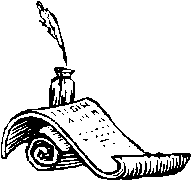 but also to extend our royal bounty and munificence towards the erection
but also to extend our royal bounty and munificence towards the erection
and foundation of the said
college, in such way and
manner as to us shall seem most expedient: We, taking the
premises seriously into our consideration, and earnestly desiring,
that as far as in us lies, true philosophy, and other good and
liberal arts and sciences may be promoted, and that the orthodox
Christian faith may be propagated: And being desirous, that
forever hereafter, there should be one such college, or place
of universal study, and some certain and undoubted way within
the said college, for the rule and government of the same, and
of the masters or professors, and scholars, and all others inhabit-
College of
William and Mary. Swem Library. Special Collections
P. O. Box 8794, Williamsburg, VA 23187-8794
http://www.swem.wm.edu/SPCOL/Charter/c3.html
Created November 22, 1999
Below are rules governing the college:
Statutes of the College of William and Mary (1727)
There are three things which the Founders of this College proposed to
themselves, to which all its Statutes shall be directed. The First is, That the
Youth of Virginia should be well educated to Learning and good Morals. The
Second is, That the Churches of America, especially Virginia, should
be supplied
with good Ministers after the Doctrine and Government of the Church of England;
and that the College should be a constant Seminary for this Purpose. The
Third
is, That the Indians of America should be instructed in the Christian
Religion,
and that some of the Indian Youth that are well-behaved and well-inclined, being
first well prepared in the Divinity School, may be sent out to preach the Gospel
to their Countrymen in their own Tongue, after they have duly been put in Orders
of Deacons and Priests....
As to the Method of teaching, and of the Government of the School, let the Usher be obedient to the Master in every Thing, as to his Superior.
On Saturdays and the Eves of Holidays, let a sacred Lesson be prescribed out of Castalio's Dialogues, or Buchanan's Paraphrase of the Psalms, or any other good Book which the President and Master shall approve of, according to the Capacity of the Boys, of which an Account is to be taken on Monday, and the next Day after the Holidays.
The master shall likewise take Care that all the Scholars learn the Church of England Catechism in the vulgar Tongue; and that they who are further advanced learn it likewise in Latin.
Before they are promoted to the Philosophy School, they who aim at the Privileges and Revenue of a Foundation Scholar, must first undergo an Examination before the President and Masters, and Ministers skilful in the learned Languages; whether they have made due Progress in their Latin and Greek. And let the same Examination be undergone concerning their Progress in the Study of Philosophy, before they are promoted to the Divinity School. And let no Blockhead or lazy Fellow in his Studies be elected....
For avoiding the Danger of
Heresy, Schism, and Disloyalty, let the President and Masters, before they enter
upon these Offices, give their Assent to the Articles of the Christian Faith, in
the same Manner, and in the same Words, as the Ministers in England, by Act of
Parliament are obliged to sign the Articles of the Church of England. And in the
same Manner too they shall take the Oaths of Allegiance to the King and Queen of
England. And further they shall take an Oath that they will faithfully discharge
their Office, according to the College Statutes, before the President and
Masters, upon the Holy Evangelists. All this
under Penalty of being deprived of their Office and Salary.
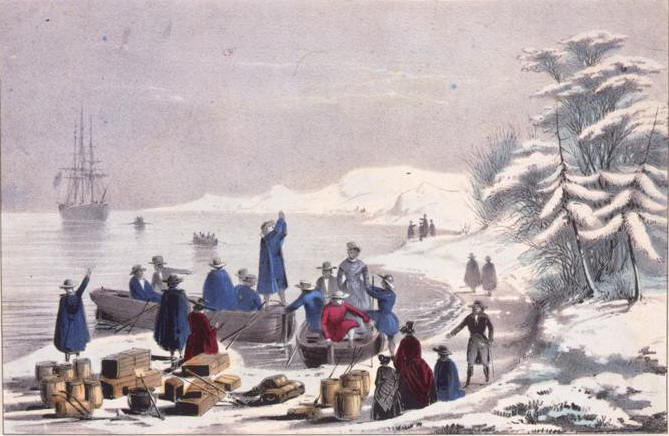
Virginia Charter
Two private companies were formed to seek a patent for colonization on the Atlantic Coast. The London Company, first to place colonists on the shore in 1607, was given the southern Virginia territory. They settled in Jamestown (named after King James I) on a river they named the James River. The other private company, Plymouth Company, was given northern Virginia.
Excepted from The First Virginia Charter, 1606, we find these words: ".....We, greatly commending and graciously accepting of their desires to the furtherance of so noble a work which may, by the providence of Almighty God, hereafter tend to the glory of His Divine Majesty in propagating of Christian religion to such people as yet live in darkness and miserable ignorance of the true knowledge and worship of God and may in time bring the infidels and savages living in those parts to humane civility and to a settled and quiet government, do by these our letters patents graciously accept of and agree to their humble and well intended desires.....
Sarony &
Major. "The landing of the Pilgrims, on Plymouth Rock, Dec. 11th 1620." c1846.
Prints and Photographs Division, Library of Congress.
From early governing documents:
|
"Every Person should go to church, Sundays and Holidays, or lye Neck and Heels that Night, and be a Slave to the Colony the following Week; for the second Offence, he should be a Slave for a Month; and for the third, a Year and a Day." Governor Argall's Decree 1617 "That religion, or the duty which we owe to our Creator and the manner of discharging it, can be directed by reason and conviction, not by force or violence; and therefore, all men are equally entitled to the free exercise of religion, according to the dictates of conscience; and that it is the mutual duty of all to practice Christian forbearance, love, and charity towards each other." Virginia Declaration of Rights, 1776
"Section I. The opinions of men are not the object of civil government, nor under its jurisdiction; that to suffer the civil magistrate to intrude his powers into the field of opinion and to restrain the profession or propagation of principles on supposition of their ill tendency is a dangerous fallacy, which at once destroys all religious liberty, because he being of course judge of that tendency will make his opinions the rule of judgment, and approve or condemn the sentiments of others only as they shall square with or differ from his own... Section II. We the General Assembly of Virginia do enact that no man shall be compelled to frequent or support any religious worship, place, or ministry whatsoever, nor shall be enforced, restrained, molested, or burthened in his body or goods, nor shall otherwise suffer, on account of his religious opinions or belief; but that all men shall be free to profess, and by argument to maintain, their opinions in matters of religion, and that the same shall in no wise diminish, enlarge, or affect their civil capacities." Virginia Statute for Religious Freedom, January 16, 1786 |
The early settlers developed colonial charters that were decidedly evangelical in their purpose, often expressing a goal for their colony to advance the Christian religion. As the country progressed up to the revolutionary war period, state constitutions evolved from the charters. Those state constitutions served to maintain the order already established by the original charters, the charters based on Christianity.